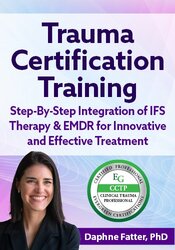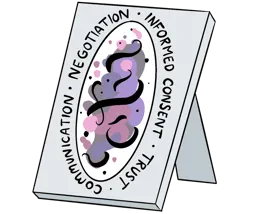Enrol in an online course today for flexible, self-paced learning—no fixed schedule required. Plus, enjoy lifetime access to course materials for convenient revisiting.
What is Trauma Healing?

We often use the term ‘trauma healing’ to describe the effects of the trauma processing treatments we offer, but no one has defined clearly what ‘healing’ means. Researchers study whether subjects improve and maintain the effects of the improvement after the treatment. They do not study whether treatments evoke a feeling of safety and mastery rather than overwhelming the client’s capacity to tolerate the emotional and bodily responses.
But trauma survivors want much more than the experience of enduring the treatment, more than decreased symptoms. They want to feel whole and safe inside. They want to feel warmth, relaxation, freedom from pain, relief from shame and anxiety. Unfortunately, most clients report a very different result of the experience of processing traumatic events. Many describe feelings of relief, exhaustion, or a sense of having come through a terrible ordeal. Some report feeling worse after processing, overwhelmed and more traumatised rather than less.
In 38 years of practice, I have never heard a report of clients feeling healed and whole as an immediate result of processing traumatic events. Yet, in the field of mental health, we continue to use the term ‘healing’ to describe the results of the treatments we offer rather than using the more accurate but depressing terms, ‘improved’ or ‘less symptomatic’.
About five years ago, I began pondering how to define what is ‘trauma healing’. If clinicians are going to use that term, I thought, we should have to define it. Despite the prevailing view that trauma treatment should focus on traumatic events, my clients had already convinced me that ‘healing’ was not the outcome of disclosing or processing memories of the horrific experiences they had endured. So, I asked myself, “If processing is not ‘healing,’ what is?”
And as I reflected, it suddenly came to me:
‘Healing’ or ‘healed’ is what we feel at the moment we finally open our hearts – to ourselves. The moment we forgive ourselves for whatever happened, let go of shame and accept ourselves fully – that is the moment of healing. When we are healed, we can feel a deep sense of compassion for that young child we once were, a warm and loving kindness toward ourselves. “I’m OK” becomes a deeply felt sense, not a polite response to the question, “Are you well?”
At that point, I set out to develop an integrative therapeutic approach to helping traumatised individuals reach that point of deep self-love and compassion. Integrating ideas and interventions from Sensorimotor Psychotherapy, Internal Family Systems, clinical hypnosis, and psychodynamic psychotherapy, Healing the Fragmented Selves of Trauma Survivors is the result.
Healing the Fragmented Selves of Trauma Survivors, with Dr Janina Fisher, is at the Hilton London Olympia from March 27-28. Click here for more information and to book.


















